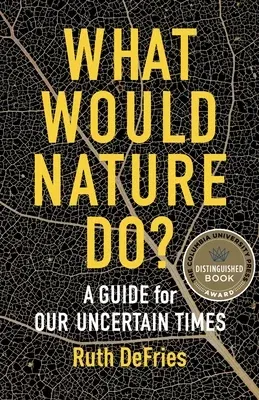Not long ago, the future seemed predictable. Now, certainty about the
course of civilization has given way to fear and doubt. Raging fires,
ravaging storms, political upheavals, financial collapse, and deadly
pandemics lie ahead--or are already here. The world feels less
comprehensible and more dangerous, and no one, from individuals to
businesses and governments, knows how to navigate the path forward.
Ruth DeFries argues that a surprising set of time-tested strategies from
the natural world can help humanity weather these crises. Through trial
and error over the eons, life has evolved astonishing and
counterintuitive tricks in order to survive. DeFries details how a
handful of fundamental strategies--investments in diversity, redundancy
over efficiency, self-correcting feedbacks, and decisions based on
bottom-up knowledge--enable life to persist through unpredictable,
sudden shocks. Lessons for supply chains from a leaf's intricate network
of veins and stock market-saving "circuit breakers" patterned on
planetary cycles reveal the power of these approaches for modern life.
With humility and willingness to apply nature's experience to our
human-constructed world, DeFries demonstrates, we can withstand
uncertain and perilous times. Exploring the lessons that life on Earth
can teach us about coping with complexity, What Would Nature Do?
offers timely options for civilization to reorganize for a safe and
prosperous future.

